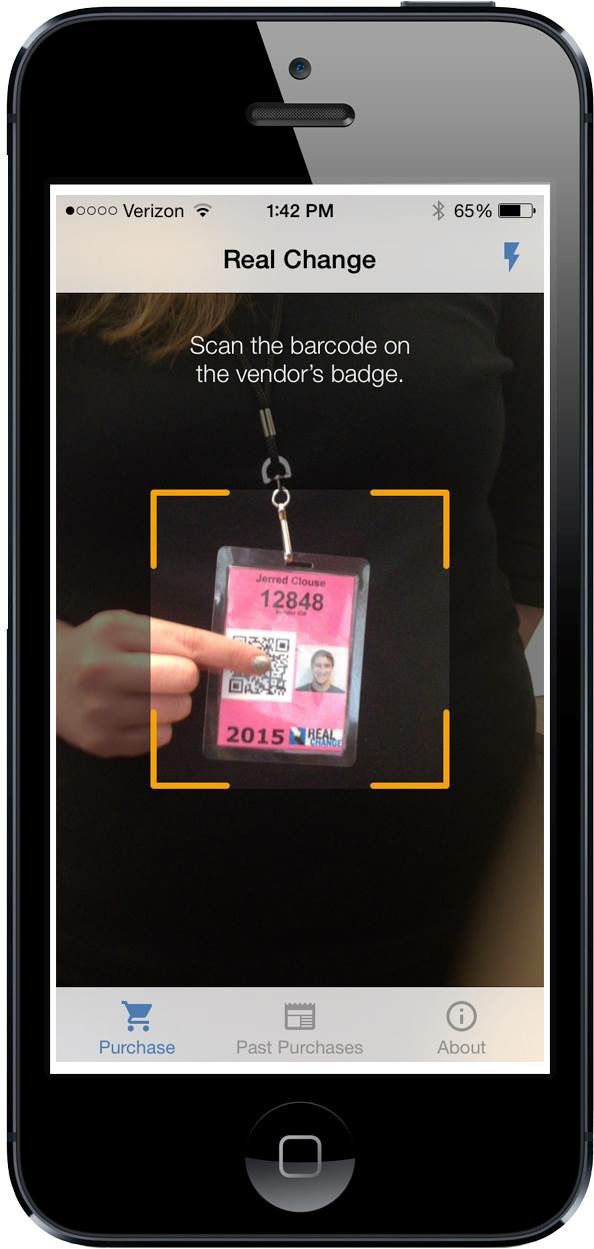By Laura Kelly
Seattle street paper Real Change has partnered with tech
giant Google to launch an app that allows customers to pay for their paper
digitally and have it delivered straight to their phones.
Vendors
have had increasingly difficulties selling the paper, since fewer and fewer
people carry cash with them, said Timothy Harris, founding director of Real Change.
“Cashlessness is a challenge our vendors face on a daily
basis,” he added. “This app will help our paper survive in the digital age,
when fewer people have ready access to cash and more people prefer to read news
content on their mobile devices.”
From today, each of Real Change’s homeless and low-income vendors
will each get a unique QR code on their vests to allow them to sell digital versions of the award-winning street paper, as
well as the usual paper copies.
After downloading the free app to their iOS or Android
phone, Seattleites will be able to scan their local vendor’s unique code to buy their
digital paper for $2.99 (including a fee from digital
content providers).
Vendors will make $1.49 every time someone buys a digital
copy of Real Change, whilst they will still get $1.40 from every paper copy
they sell. The paper copy will still cost $2.
“We designed this with our vendors and customers in mind,”
said Harris. “This app will build on the strong relationships our vendors have
with many of their customers, while helping customers benefit from an
increasingly seamless buying experience. The paper is just a scan away.”
The project was started two years ago by a Google employee
who volunteered at Real Change as part of Google’s annual week of service.
Since then, eight Googlers have volunteered their time to
develop the cross-platform app, the first of its kind for the paper.
 |
| The app in action. |
“The whole team
has worked very hard to create a technical solution to provide opportunities
for those who are in need.”
“Street newspapers around the world are looking for a
solution to how they can better adapt to the changing media landscape, while
still staying true to the signature street paper model,” added Darcy Nothnagle,
Public Affairs Manager for Google.
“We hope that this app will be a model many street papers
can use, globally.”
Real Change’s app is just one of the pioneering digital adaptations
coming from INSP’s members.
Others include Chicago-based StreetWise’s partnership with
PayPal and The Big Issue South Africa’s SmartBibs, both of which also allow
customers to pay online using their phones.
In Europe, Amsterdam’s Z! magazine and
Scandinavian papers =Norge, Situation Sthlm and Faktum are working on pilot
projects to provide vendors with card readers, so that customers can pay with
debit or credit cards.
In addition, some papers, including Situation Sthlm and Norway’s
=Norge, use payments through text messages.
“Many of INSP's 114 street papers, in 35 countries, are
facing issues based on the continuing march of our cashless society,” said INSP
chief executive Maree Aldam.
“Innovative solutions such as Real Change’s app show how
dynamic street paper organisations can continue to provide employment to some
of the most vulnerable people in society, despite the new challenges they face.”



